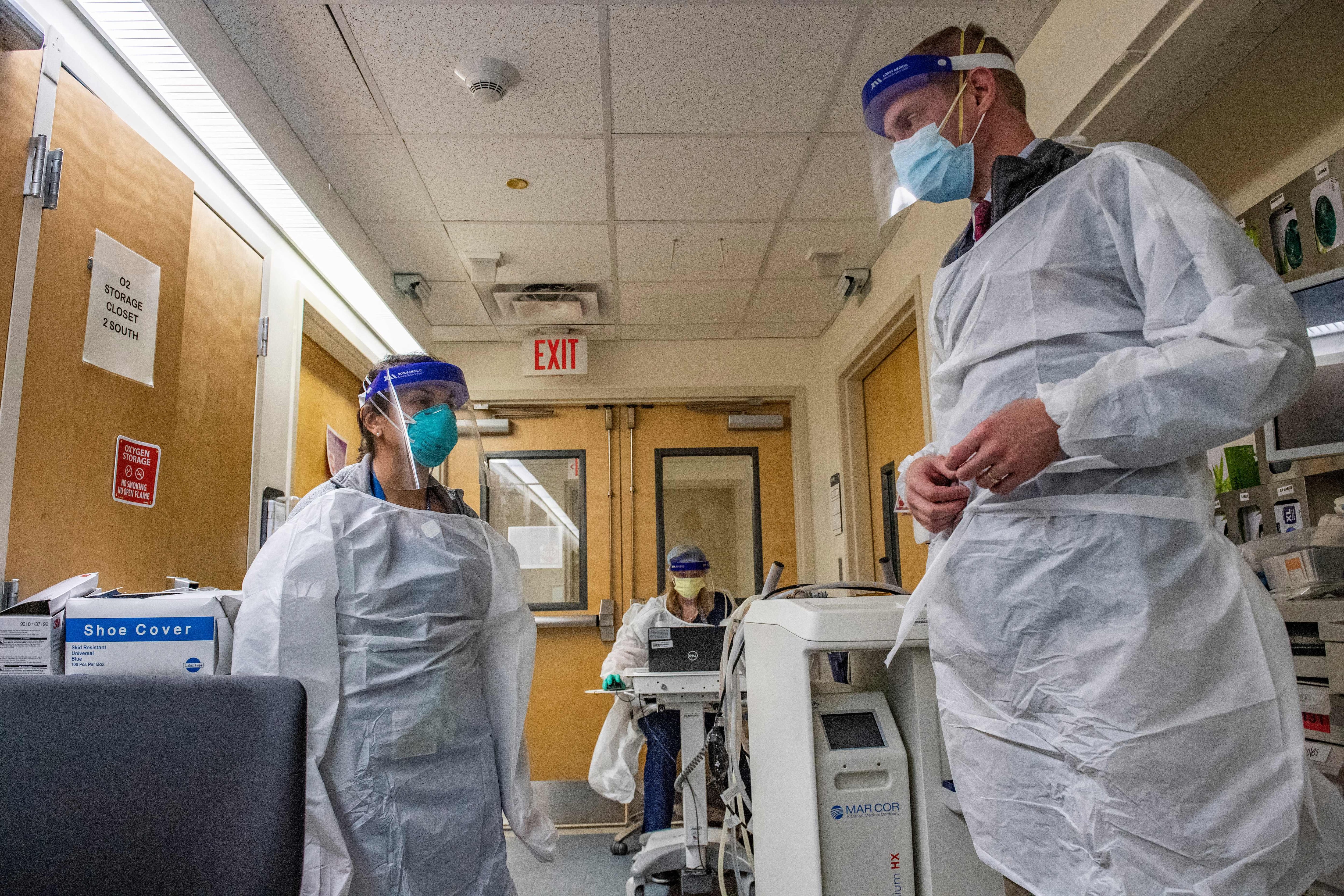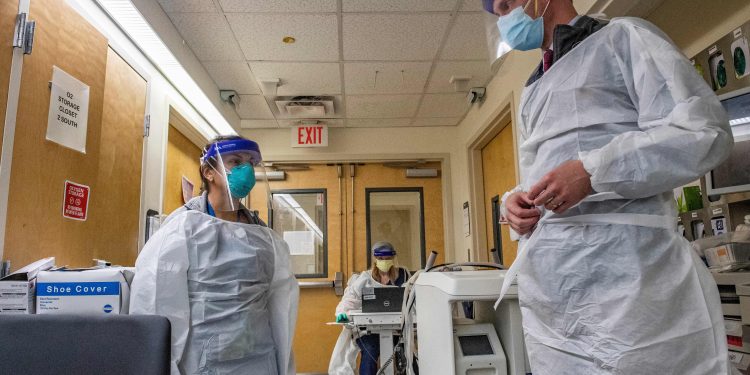Veterans Affairs officials issued guidance Thursday exempting more than 300,000 department health care positions from the White House’s federal hiring freeze, calling them critical to public health and department operations.
The memo, issued by Acting VA Secretary Todd Hunter, follows days of concern from lawmakers and veterans advocates about the impact of the hiring freeze, ordered by President Donald Trump a few just hours after his inauguration. Federal offices sent notices to potential workers this week alerting them of the ban on new hires.
The order included an exception for military personnel, as well as positions related to immigration enforcement and public safety. He also stated that “nothing in this memorandum shall adversely impact the provision of Social Security, Medicare or veterans’ benefits.”
But during his confirmation hearing Tuesday, VA secretary nominee Doug Collins acknowledged that department staff were still working on the order to determine which positions would be affected.
RELATED

Hunter’s memo, provided to congressional staff, states that any new employees scheduled to start before Feb. 8 will be allowed to assume their duties. All other new hires will be revoked at this time.
However, the memo also lists 39 exempt health care professional positions, including mental health providers, physical therapists, nursing assistants, medical records administrators and prosthetic specialists. The total number of jobs on the list exceeds 304,000.
Hunter said these positions are “critical to providing care to Veteran Health Administration veterans.”
Some positions related to processing veterans’ benefits will also be exempt, but offices will be required to submit justification for these moves.
“VA remains committed to being deliberate in the hiring actions taken to ensure we are positioned for success as we implement comprehensive modernization efforts and reform plans consistent with the Office of Management and Budget,” Hunter wrote in the note.
Senate Veterans Affairs Committee Chairman Jerry Moran, R-Kansas, praised the administration for responding to public concerns about the hiring freeze’s impact on veterans’ care.
“I appreciate that VA quickly issued guidance to continue hiring health care and other essential VA employees to ensure that certain veterans and their families continue to receive their care and benefits in a timely manner ” Moran said in a statement. “The past two years have seen drastic inconsistencies in VA’s staffing strategy and hiring guidance, and I encourage the new administration to establish a clear, long-term staffing plan. “
The 300,000 exempt VA employment positions represent about two-thirds of the department’s current workforce. Labor groups denounced the hiring freeze, calling it unnecessary and potentially disruptive to the agency’s operations.
But the White House argued the move was necessary to slow the growth of the federal government and ordered a 90-day review to examine ways to downsize the government. About 3 million Americans are in the federal workforce, according to the Bureau of Labor Statistics.
In a separate memo this week, officials with VA’s Center for Development and Civic Engagement office said the hiring freeze would also prevent any new unpaid volunteers from working at VA medical centers and other offices.
Moran’s committee voted Thursday to advance Collins’ nomination to the full Senate by a vote of 18-1, with the only dissent coming from Sen. Mazie Hirono, D-Hawaii. She argued that Collins’ lack of support for veterans’ access to abortion services disqualified him for the position.
Moran said he hoped Collins could be confirmed before the end of the month, in part to help allay other concerns about the impact of new White House policies that could impact Veterans Affairs operations .
During his confirmation hearing, Collins expressed confidence that White House efficiency initiatives would not be aimed at reducing veterans’ benefits or support services, but rather at improving their delivery and availability.
Leo covers Congress, Veterans Affairs and the White House for Military Times. He has covered Washington, DC since 2004, focusing on military personnel and veterans policies. His work has earned him numerous honors, including a Polk Award in 2009, a National Headliner Award in 2010, the IAVA Leadership in Journalism Award and the VFW News Media Award.


